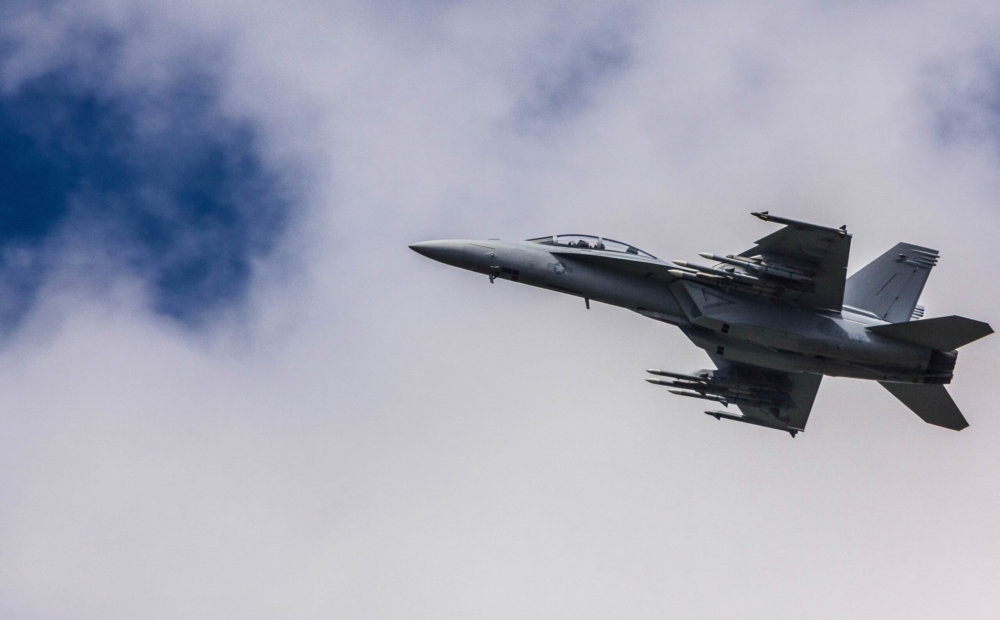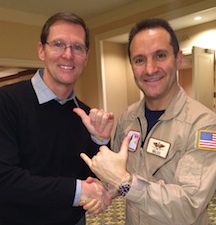
Failing can teach us many lessons, especially when it comes to leadership.
And when we fail to show appreciation towards the most important people around us, we need to acknowledge exactly why it can be so detrimental to their lives and ours.
As a young Captain flying F-16s, I was used to having everything prepped for me before a flight. One day I got angry at a maintenance crew chief for failing to fuel the aircraft enough before a training flight.
It actually wasn’t a huge deal (I had plenty of fuel). Still, I was annoyed that it meant I needed to shorten my training session.
When my commander heard about this, he wasn’t pleased. But what he told me to do next taught me a valuable life lesson.
My commander suggested that I should step into the maintenance crew’s shoes for a day to give me a better sense of appreciation for what they do every day.
So I did — and this was one of my biggest lessons in humility.
After doing inspections, changing tires, and refueling jets, I realized just how difficult that work was.
Before this, I really didn’t have a clear grasp on exactly what they did every day to make sure that the flight crew was completely safe and prepared. By taking care to cover all their bases, they were basically saving our lives. Every single day.
And here I was not having a clue who they were or what they did.
When we’re growing as leaders, we’re bound to run into some rough patches, and even mess up from time to time. It’s all part of the journey.
Once I got a better idea of what my teammates were doing, I developed a more solid sense of gratitude for them. I understood who they were, where they came from, and how they contributed to the team every day.
All I knew up until then was that I was an Officer, and they were enlisted soldiers.
I also developed a whole other level of gratitude for my own position. It was, in fact, a kind of privilege to be able to fly planes every day, and I chose from then on to stop taking it for granted.
The way I see it, there are seven foundational principles that can help us grow as leaders, build teams based on trust, and push everyone’s performance to the max.
Number one is:
Employ “Wingmen” to Promote Communication, Integrity, and Trust
When I talk about walking the flight line, I’m talking about this foundational principle which is based on connect. When we understand each other, when we listen and show compassion, the whole organization just runs more smoothly.
This doesn’t mean we have to be “perfect” — we still have egos which will jump in from time to time. But fundamentally, practicing gratitude and presence will make us better leaders.
When I worked in maintenance for just that one day, I learned that some of the people I met had dreamed about doing what I do. They just didn’t quite get there because of barriers like money or academic standing.
They were my equals, but I had different opportunities than they did. It made me realize I didn’t know them at all because I hadn’t bothered getting to know them up until that point.
This made me appreciate my own position in a different way, and be humbled by my privilege. These were people I worked side by side with every single day, and not once had I stopped to appreciate their lives, strengths, contributions.
These were the unsung heroes who made a huge impact, yet rarely got the kind of recognition they deserved.
Great leaders have the ability to look past their ego. They see what’s really happening and objectively understand why they are behaving in a certain way. They also know when to stop talking and start listening, when to ask for help, and how to problem-solve through almost any of life’s challenges.
So I challenge you to look around today and walk in someone else’s shoes. Recognize the unsung heroes who do the hardest jobs in your organization.
How well are you engaged with your team?
What are their names? How do they help to make your day easier?
What can you do to show greater appreciation for them, their role and contribution?
When people know they are seen and appreciated – not just for what they do but for who they are – they are more likely to enjoy their jobs and be more productive.
They will also be more resilient when it comes to conflict and other challenges they face at work and beyond.
When we “walk the flight line” — that is, walk in our teammate’s shoes, we gain new levels of appreciation for everybody’s role, as well as our own.
Surviving Vs. Winning: The Leader’s Mindset
I Have the Aircraft! – Where Accountability Meets Action

Waldo and Enos Dodson
PS – I was fortunate to spend time with the commander who taught me this valuable, humbling lesson about appreciation over a decade ago. At the time, I admit I was sort of angry at him – even though I deserved it. But being a leader sometimes means reprimanding people that work for you when they mess up. It’s not easy to do. And while they may not realize the lesson at the time, it can make a lasting impression and help them become a better leader in the future. Thank you Lt Col “Enos” Dodson!
This article was originally posted on January 21, 2014, but has since been updated.